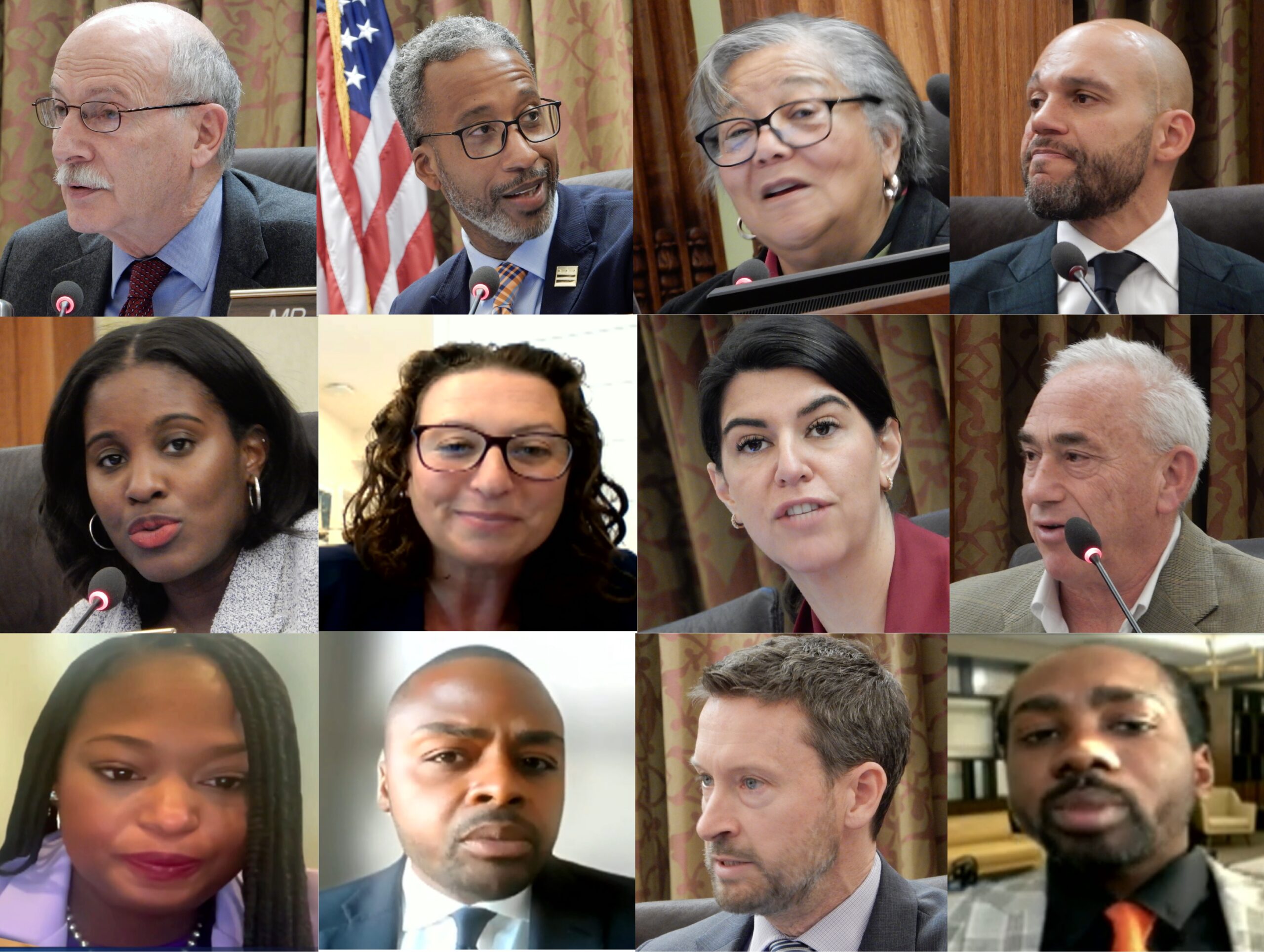Council Acts to Help Ensure Long-term Presence of District Sports Teams

At its most recent Legislative Meeting (the third-to-last of the year and of the two-year Council Period that concludes on January 2), the Council passed two bills aimed at insuring the District’s sports teams remain anchors of the local economy for decades yet to come.
In the first of two necessary votes, the Council voted to support legislation funding the purchase and redevelopment of Capital One Arena. After facing the threat of the Washington Capitals and Wizards departing downtown DC, it was clear that a change in the arena’s status was necessary. First, the legislation shifts ownership of the arena itself from Monumental Sports to the District government, with the facility then leased back to Monumental Sports, who will operate and maintain it. This is akin to the longtime status of Nationals Park. The adjacent District government-owned commercial and alley spaces will also be part of the lease, as will air rights over both spaces. The lease will be in effect through 2050, with up to five four-year renewals beyond that.
In addition to the ownership shift, a substantial upgrade to the facility, focused on the customer/fan experience, will be undertaken. The renovation will include increasing seat options, upgrading the facade, and expanding visitor amenities. Renovation work will be subject to a Project Labor Agreement, and a 40 percent Certified Business Enterprise target benefiting minority-owned contractors will be enforced. Additionally, District government services in the area surrounding the arena, including safety and transportation, will be augmented. The District’s cost of $515 million is set, as is Monumental Sports’ contribution of a minimum of $285 million, with any project cost overruns to also be covered by Monumental.
An additional piece of legislation aimed at guaranteeing operating stability for both the sports teams that play in the District, as well as for the critical role these teams play in our local economy, received the second of two necessary votes at the most recent Legislative Meeting (with the first vote having occurred back in July). In this second case, the bill focused on the Nationals.
As just stated, the District already owns Nationals Park. With the bonds that financed the construction of the facility soon to be paid off, some of the financial mechanisms that funded the ballpark’s construction will be retired. However, under the new legislation, others will remain active, and will be dedicated to a standalone maintenance and capital improvement fund. This fund will ensure ready access to needed maintenance funds at a time in the stadium’s lifecycle when substantial renovations are to be expected, and with a lease renewal for the Nationals at the park in the not-too-distant future.
To that end, the effective date of the new legislation is truly fundamental: it would go into effect upon execution and Council approval of a new lease between the District and the Nationals, extending the lease through 2054.
Generating the most discourse at the most recent meeting was an effort to balance throwing a lifeline to the residents of a building in crisis with the precedent one iteration of such assistance could create in District consumer protection law. With a recent court decision implying that the District government could be perceived as a merchant in situations where it was involved in multiple aspects of an affordable housing project it had actively engaged with, the Office of the Attorney General felt strongly that this ambiguity in the law needed to be clarified immediately. The emergency bill approved at the most recent meeting clearly declares that under the terms of the District’s consumer protection laws, the term “merchant” does not apply to the District government.
While this core element of the emergency legislation was undisputed, an effort to use the same bill as the vehicle through which to assist residents of one particular star-crossed condemned property led to much conversation on the dais. In the end, the Council’s vote indicated that past and planned future financial recourse for these affected residents distinct and separate from the clarifying bill was a safer, if less satisfying, means of bringing them redress.
In other action at the most recent meeting, the Council approved on the first of two necessary votes, legislation to better mitigate the noise impact of performance venues and entertainment districts on residential properties. The bill would require improved soundproofing be installed in new residential construction in entertainment districts and near performance venues, and would also require that leases for existing buildings in such districts include new, mandatory disclosure of the presence of possible heightened noise in such areas.
Also approved at the most recent meeting: modifications to the District’s existing Building Energy Performance Standards (BEPS) legislation, a measure which attempts to lessen energy consumption by medium and large buildings over time. The new bill allows a gap year between enforcement periods so that the Department of Energy and the Environment can better assess and modify bill standards. The bill also addresses issues raised with the benchmarking standards included in the original legislation, in order to minimize the burdens imposed by the standards while still maintaining their integrity.
The Council has two more Legislative Meetings scheduled prior to the conclusion of two-year Council Period 25, which ends on January 2, 2025. The two meetings will occur on December 3 and December 17.